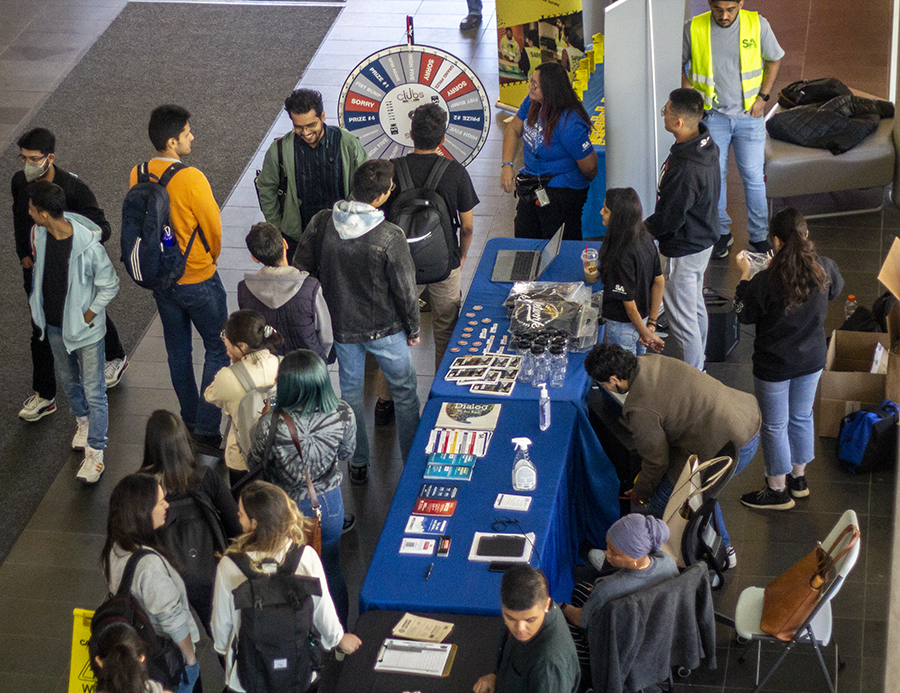Clubs give students a place to come together.
The Student Association (SA) service has always offered the students at George Brown College (GBC) a place for collective minds to come together under the banner of their interests.
There are different clubs for GBC students to join this year including academic clubs focusing on course subjects, cultural clubs connecting peers coming from similar backgrounds, health and counselling clubs to volunteer for the community, and recreational clubs featuring sports and gaming.
As the service welcomes back to students this year, coordinator Russ Adade is looking for ways to make it easier for clubs to be created.
During the pandemic, the service was focused on delivering online programs through Zoom webinars and created their own platform of programming.
“When it comes to online programming, we utilized a lot of our platforms, including social media, to pin with broadcasts to help promote and find different ways to engage with students.” said Adade. “But our main thing during the pandemic was to create awareness and find a way where we could still keep a high student engagement level with our student clubs.”
He adds that they tried out many different activities such as inviting guest speakers for online webinars or providing external resources to help in academics.
Now in his fifth year as the Clubs coordinator, Adade looks forward to seeing growth. Each club and network can have their own constitution, vision and guidelines of how they want to develop programs for their peers, members and other GBC students.
“So, I’m just excited to see the creative side of our various student clubs coming to life during this academic year,” he added.
Students are welcomed to create their own clubs and propose funding. New clubs must follow under the four categories of academic, cultural, health and counselling or recreational.
Some of the key steps include finding peers with common interests and have at least three people to take the role of executives in the club; making sure it is distinct from existing clubs; and collecting a minimum of 10 signatures from current students who would like to join, filling out the application form and submitting it online.
The applications would then be verified, and approved club groups would receive a probationary period before being ratified by the clubs and student-led networks. Only ratified clubs can receive funding from the SA.
Clubs being funded must operate for at least one academic year and hold two events per semester. The maximum amount of funds granted is $1,000 for a year, from September to April.
For more information, visit https://www.studentassociation.ca/clubs/.


